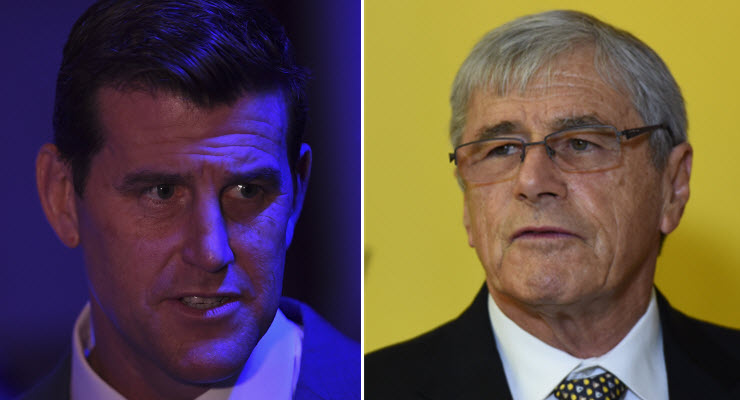
The appalling revelations of the Brereton war crimes report have made headlines around the world, already resulting in the disbanding of the SAS regiment at the centre of the allegations of war crimes, the Special Air Service Regiment 2 Squadron.
But the SAS unit has found solace from one source: Seven West chairman Kerry Stokes. Already, Stokes has loaned decorated former SAS soldier Ben Roberts-Smith somewhere between $1 million and $2 million (depending on the source) to aid his — so far not going all that great — defamation case against the Nine papers.
Nine had printed allegations that the Victoria Cross and Medal for Gallantry recipient was investigated for involvement in executions and mistreatment of prisoners in Afghanistan. Roberts-Smith, a former member of the disbanded squadron, is now an executive at Seven and denies the allegations.
Now Stokes, who also chairs the Australian War Memorial, may end up using a special fund — initially set up after a helicopter crash killed or injured 15 soldiers more than two decades ago — to help other members of the disbanded regiment with the costs of their prosecution following the report.
The war hero/alleged war criminal descriptor for Roberts-Smith is awkward enough for any publication dealing with the matter, but one must feel for the journalists at publications under the Seven West banner, who must wonder more than usual what the boss makes of their coverage.
Seven reported the story straight, with Sydney news anchor Anne Sander cutting to Olivia Leeming at the defence headquarters in Canberra as the report broke. The two discussed the contents of the “shocking” and “confronting” report.
Leeming didn’t shy away from the detail that none of the victims of the war crimes were combatants, nor did their deaths come in the “heat of battle”, though she did note defence force chief General Angus Campbell’s assertion that the crimes were committed by a minority of the troops.
The West Australian presented the findings in a stark and haunting front page, a chalkboard with 39 notches, representing the callous and casual way these lives where apparently discarded.
It’s also worth noting the use of the word “rogue” in the standfirst, and that star reporter Annabel Hennessy spoke on the angle of whether the report broadly exonerates the military’s top brass.

It is to the credit of the journalists that it does not appear that Seven or The West Australian softened their reporting — although given the findings of the inquiry, short of omitting key details, or ignoring an unignorable story, one wonders how they could.
That said, once the initial shock of the report wears off, it will be worth keeping an eye on what the Seven West publications do and don’t say on the subject.








Crikey encourages robust conversations on our website. However, we’re a small team, so sometimes we have to reluctantly turn comments off due to legal risk. Thanks for your understanding and in the meantime, have a read of our moderation guidelines.